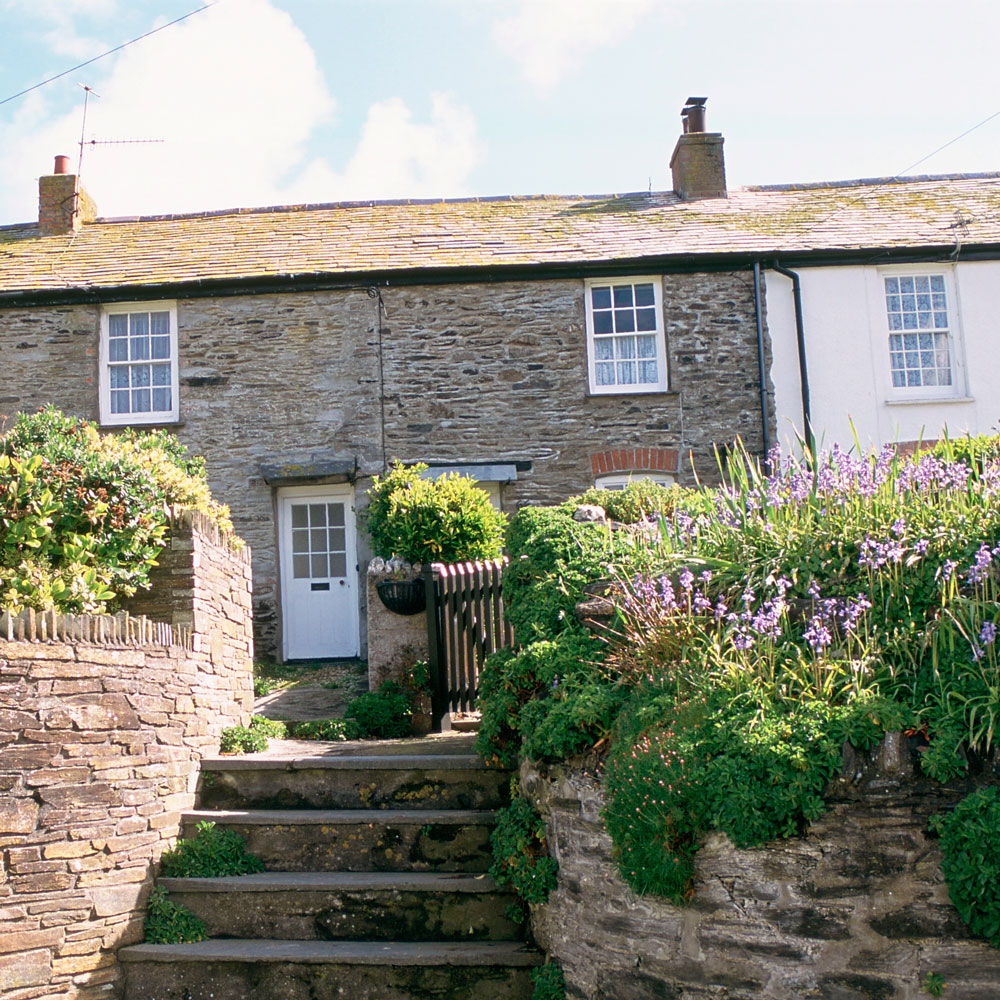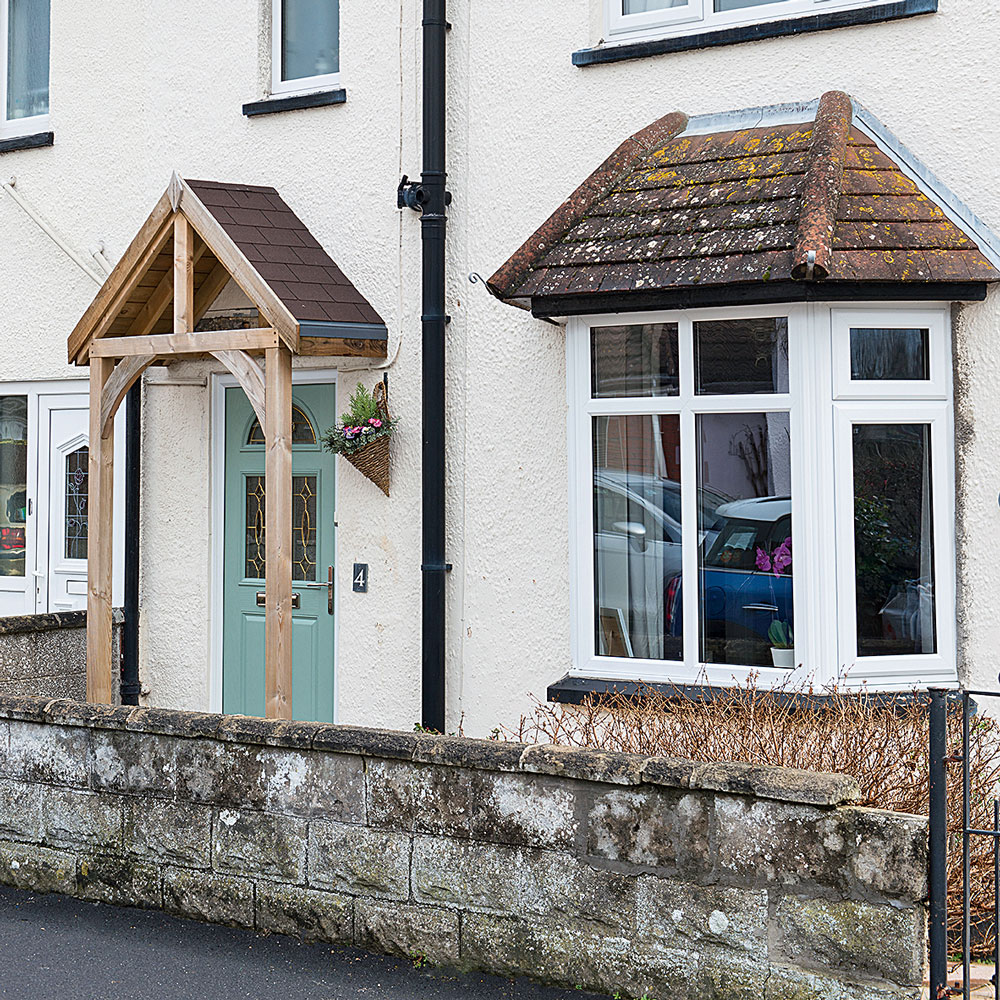House insurance for flood-risk areas – your options explained
Buying house insurance for flood-risk areas can feel like a minefield as you may not be insured for flood damage as standard. Here’s how to make sure you’re properly covered
Sign up to our newsletter for style inspiration, real homes, project and garden advice and shopping know-how
You are now subscribed
Your newsletter sign-up was successful
A flood can cause tens of thousands of pounds’ worth of damage to your home and its contents, causing misery and inconvenience. Meaning it’s essential to make sure you have suitable house insurance for flood-risk areas in place.
An estimated one in five homes in the UK is at risk of flooding according to JBA Risk Management, which assesses flood risk. That number is sure to rise as we expect there to be more flooding in the future, as winter rainfall increases and sea levels rise due to climate change. And while you might consider floodproofing your house, it's not entirely preventative, and there is still a chance your home could be damaged by water ingress.
Insurer Aviva has seen this first hand with a major spike in home insurance claims for flood damage to homes in 2019 and 2020.
The Environment Agency estimated that flooding in the UK in 2019/20 caused £78 million worth of damage but this would have been £2.2 billion if improvements had not been made to flood defences.
Does a standard insurance policy offer sufficient cover for houses in a flood-risk area?
Standard buildings and contents insurance policies do cover damage caused by flooding but if your home has been flooded before or you’re in a flood-risk area some insurers won’t cover you against flooding. Or you could have to pay significantly more for your policy and pay a high excess (the amount of a claim you have to pay yourself) on any flood claim .
‘Insurers use a variety of data sources to determine the associated risk of properties that may be in flood-risk areas and whether they can provide an insurance policy for the home,’ says Anthony Mellor, head of home insurance at Atlanta Group, which includes broker Swinton Insurance.
Is house insurance for flood-risk areas expensive?

Home insurance costs for flood-risk areas is not necessarily higher. To help households in flood-risk areas that were struggling to get affordable flood cover, in 2016 the insurance industry launched Flood Re.
Sign up to our newsletter for style inspiration, real homes, project and garden advice and shopping know-how
Flood Re is a not-for-profit reinsurance company that helps participating insurance companies cover their losses from paying flood insurance claims. This means more of them can offer flood insurance and they can keep the cost of premiums and excesses down.
‘The industry worked alongside the government to design, develop and implement Flood Re,’ says Malcolm Tarling of the Association of British Insurers. ‘Consumers purchase home insurance from an insurer in the normal way and their insurer decides whether to cede (pass on) the flood risk element of the policy to Flood Re.’
You can benefit from Flood Re if you live in an area with a high risk of flooding and your home was built before 2009.
Visit the Flood Re website to see a list of the insurers that offer cover through it, which includes many well-known brands, and find out whether you qualify. If you do, shop around participating insurers to find the best policy for your needs (rather than the cheapest) that covers you for flooding.
Make sure you check the excess that would apply to a flood claim to make sure you would be happy to pay it. The higher the excess you agree to the lower the premium is likely to be.
Comparison sites may not be the best way to find insurance for a property at risk of flooding as they are more suitable for comparing standard policies. ‘An insurance broker may well be able to help find the most appropriate insurer for your particular needs,’ says Malcolm Tarling. Alternatively, contact insurers directly.
How do I know if my property is in a flood-risk area?
You can check whether your home is at risk of flooding online according to where you live in the UK:
- For England and Wales see the flood maps on Gov.uk
- For Scotland see the Scottish Environment Protection Agency flood maps
- For Northern Ireland see the Department for Infrastructure flood maps

The maps for England and Wales put areas into flood zones. Zone 1 means there is a low probability of the area flooding (less than a 0.1% chance of flooding in a year). Zone 2 indicates medium probability. Zone 3 indicates high probability (a 1% chance or more of river flooding in a year and a 0.5% chance or more of sea flooding) or a floodplain.
The Scottish maps show a low, medium or high likelihood of flooding and the maps for Northern Ireland give a percentage chance of flooding in a year.
Your solicitor or conveyancer will also check for flood risk when you’re buying a property. If you are buying a home in a flood-risk area, it’s worth finding out whether any measures have been installed to protect the property from flooding, or how much it would cost to install them if not.
How can I reduce the chance of my home flooding?
There are measures you can take to protect your home from flood damage. ‘These can minimise damage caused by water and help you return to your home quicker,’ says Adam Winslow, CEO of UK & Ireland general insurance at Aviva. ‘They can be installed after a flood claim or beforehand.’
Flood-resistance measures help to stop water coming into your property while flood-resilience measures help to protect your home if flood water comes in.
Flood-resistance measures include:
- Flood gates on doors and windows
- Non-return valves on toilets to stop sewage coming into your home
- Air brick covers and self-closing air bricks
Flood-resilience measures include:
- Replacing carpets with solid floors
- Moving plug sockets higher up
- Using waterproof plaster on walls
- Storing valuable and important items on high shelves or upstairs
- Fixing TVs and other electrical appliances to the wall above the possible water level
You should get advice from a specialist flood surveyor about which measures will be best for your home based on the property, the environment and the type of possible flooding before installing any. You can find one on the Royal Institution of Chartered Surveyors website.
Following a government consultation in 2021, changes are to be made to the Flood Re scheme. Giving households that have experienced flooding discounted insurance premiums if they install these measures. They will also be able to get help with the cost of installing them.
You should sign up to any flood warnings available in your area to give you plenty of time to prepare for a flood.